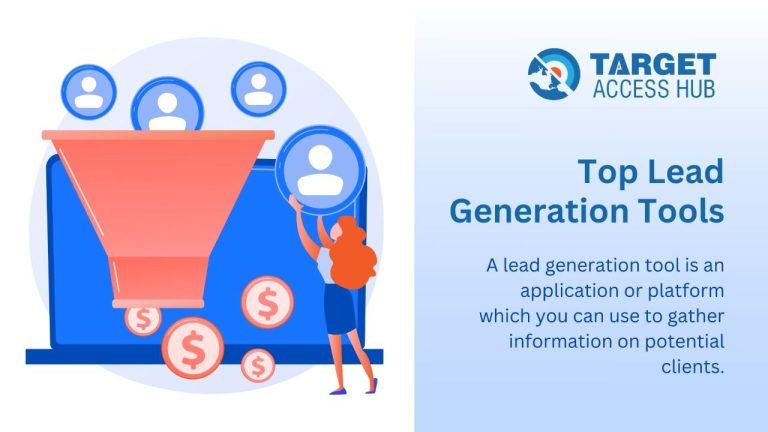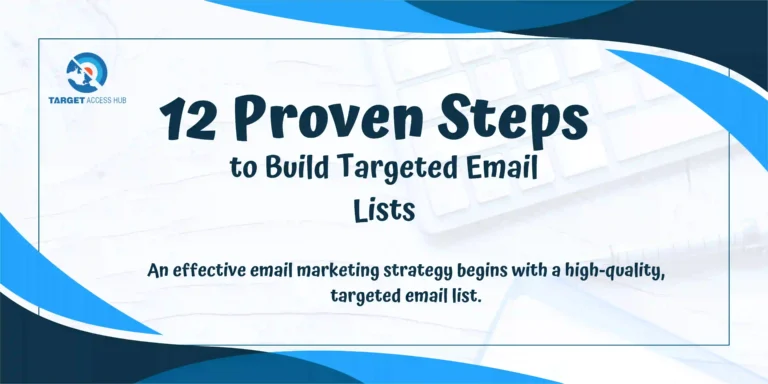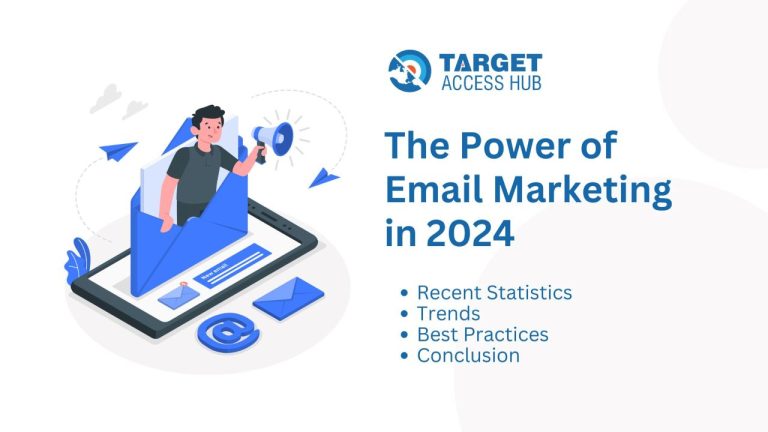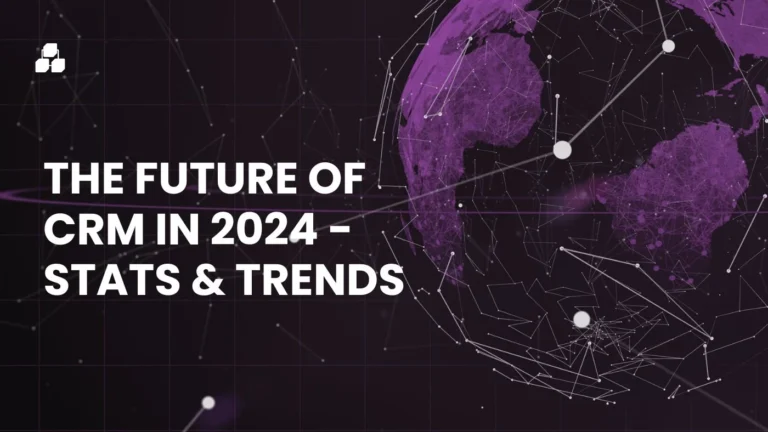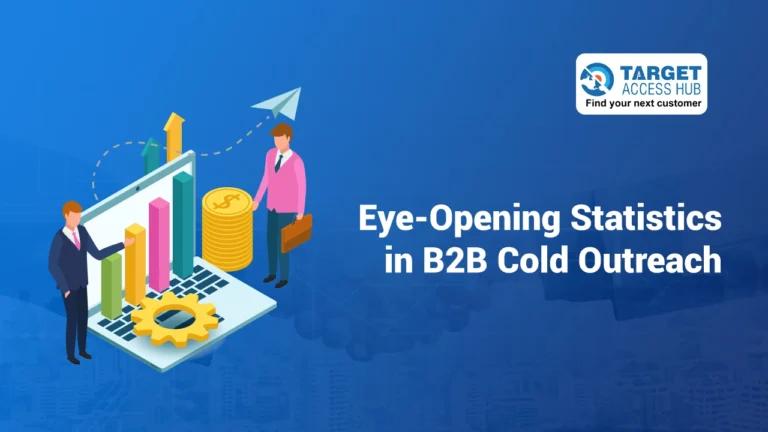What is Data Licensing?
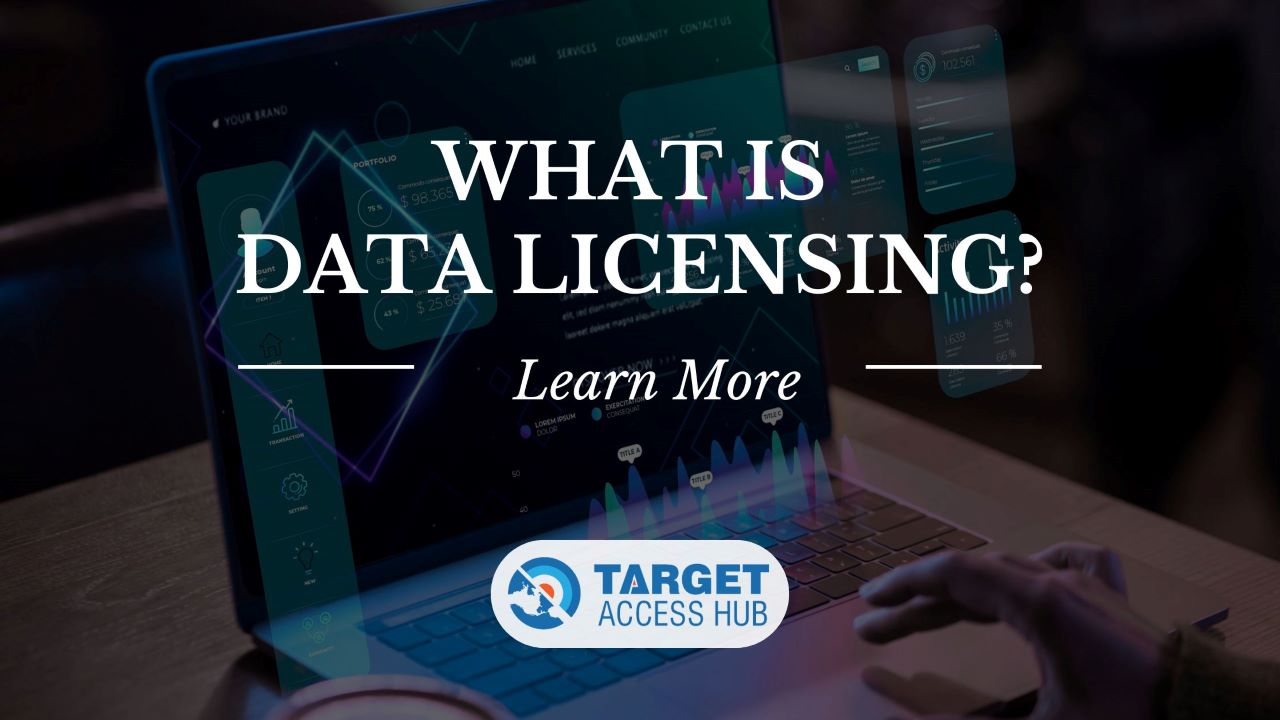
What is Data Licensing?
Data Licensing is the process of granting permission to use, share, or access data under specific conditions. It defines the terms under which data can be used, ensuring legal protection for both the data provider and the user.
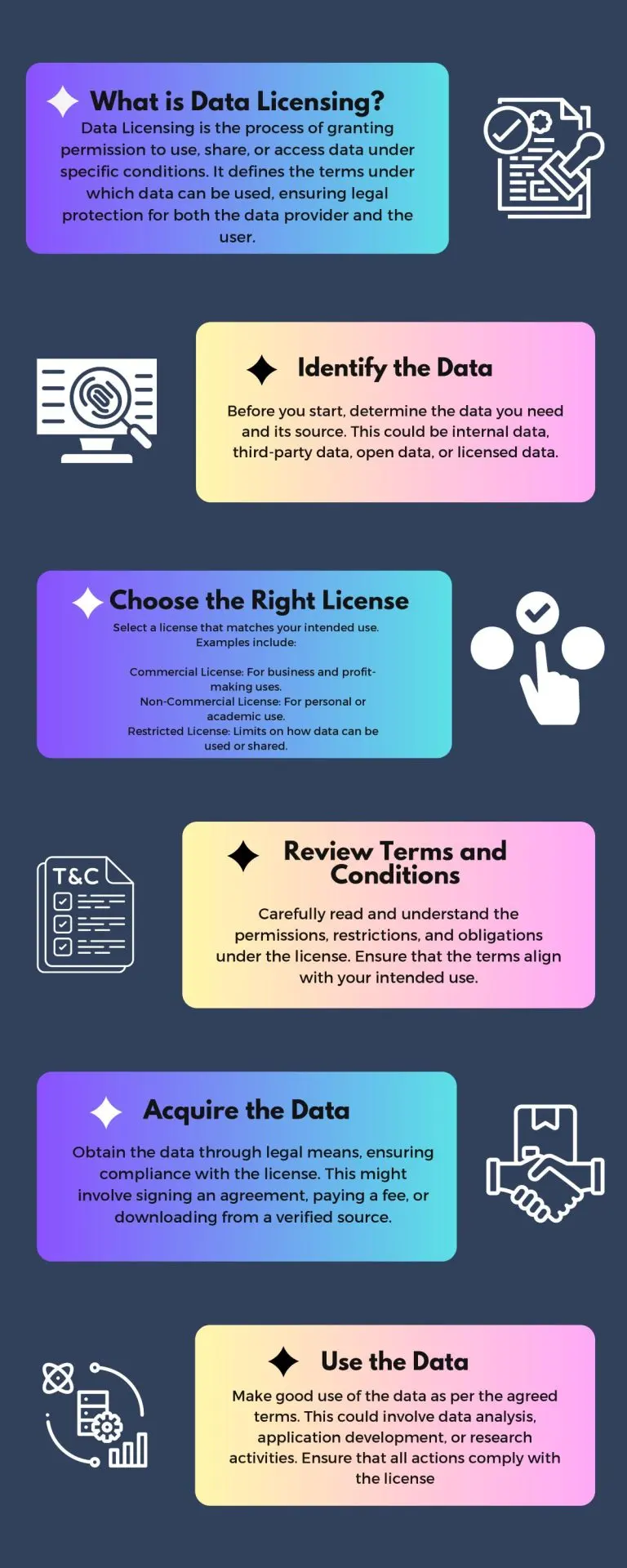
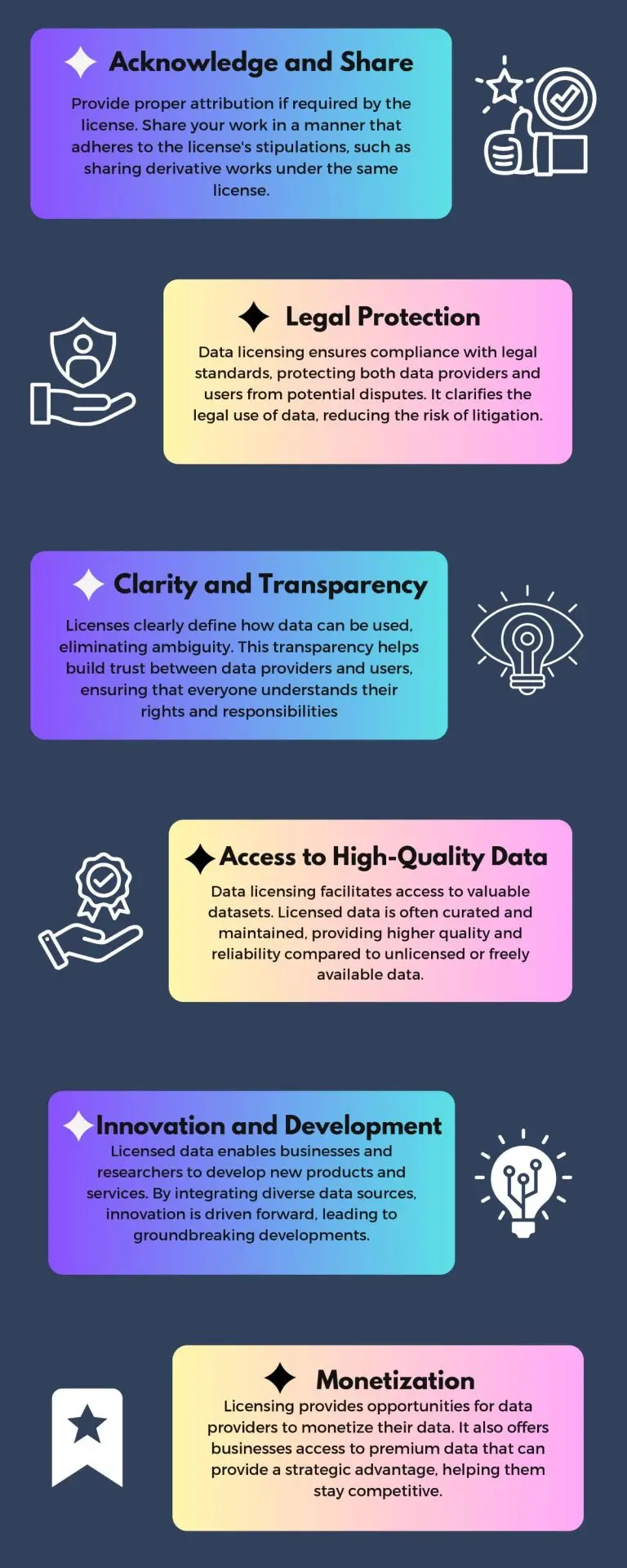
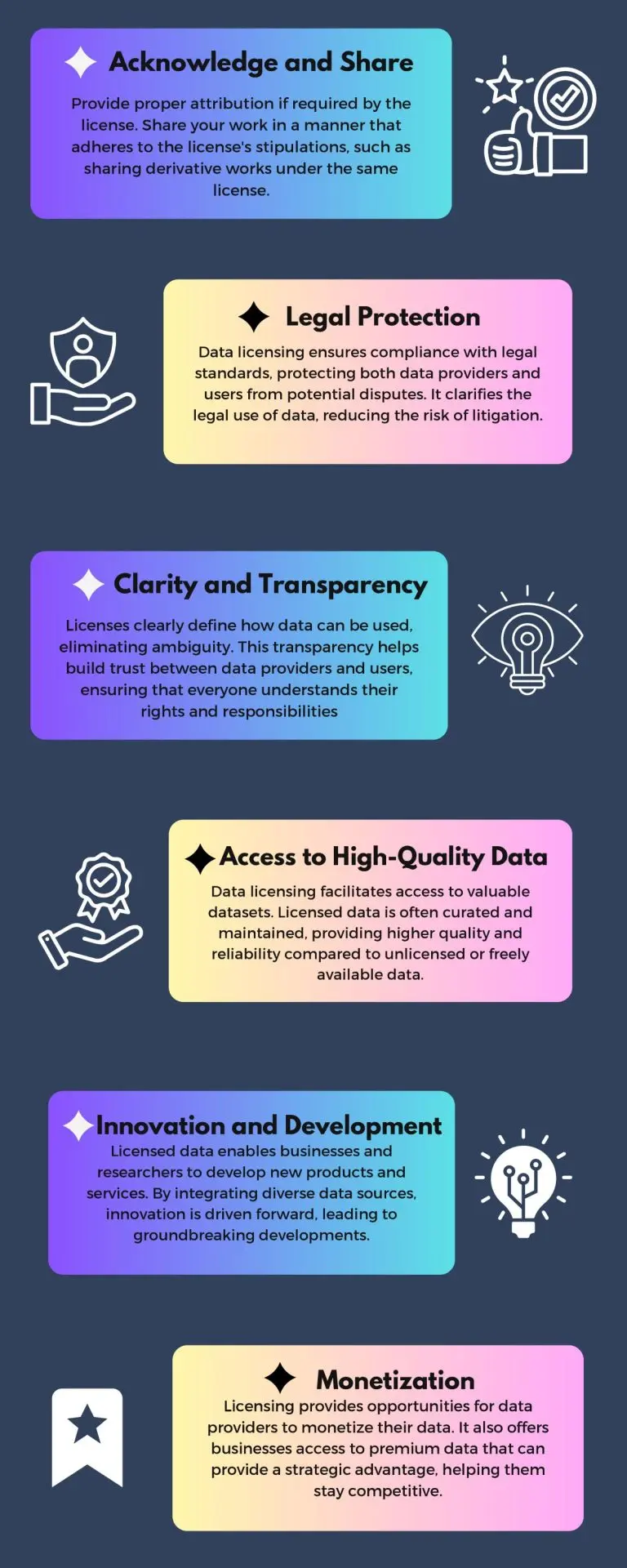
Identify the Data
Before you start, determine the data you need and its source. This could be internal data, third-party data, open data, or licensed data.
Choose the Right License
Select a license that matches your intended use. Examples include:
- Commercial License: For business and profit-making uses.
- Non-Commercial License: For personal or academic use.
- Restricted License: Limits on how data can be used or shared.
Review Terms and Conditions
Carefully read and understand the permissions, restrictions, and obligations under the license. Ensure that the terms align with your intended use.
Acquire the Data
Obtain the data through legal means, ensuring compliance with the license. This might involve signing an agreement, paying a fee, or downloading from a verified source.
Use the Data
Make good use of the data as per the agreed terms. This could involve data analysis, application development, or research activities. Ensure that all actions comply with the license.
Acknowledge and Share
Provide proper attribution if required by the license. Share your work in a manner that adheres to the license’s stipulations, such as sharing derivative works under the same license.
Legal Protection
Data licensing ensures compliance with legal standards, protecting both data providers and users from potential disputes. It clarifies the legal use of data, reducing the risk of litigation.
Clarity and Transparency
Licenses clearly define how data can be used, eliminating ambiguity. This transparency helps build trust between data providers and users, ensuring that everyone understands their rights and responsibilities.
Access to High-Quality Data
Data licensing facilitates access to valuable datasets. Licensed data is often curated and maintained, providing higher quality and reliability compared to unlicensed or freely available data.
Innovation and Development
Licensed data enables businesses and researchers to develop new products and services. By integrating diverse data sources, innovation is driven forward, leading to groundbreaking developments.
Monetization
Licensing provides opportunities for data providers to monetize their data. It also offers businesses access to premium data that can provide a strategic advantage, helping them stay competitive.
Compliance and Risk Management
Adhering to data usage laws through proper licensing avoids legal issues and penalties. It also reduces the risk of data misuse, ensuring that data is handled responsibly and ethically.
Building Trust
Establish trust with data providers and stakeholders by following licensing agreements. Transparent data practices enhance reputation and foster long-term relationships.
Competitive Edge
Gain a competitive edge with exclusive data that others might not have access to. Licensed data supports data-driven decision-making and strategy formulation, giving your organization a strategic advantage.
And That’s a Wrap!
And that’s the end of our short and handy guide on data licensing basics. If you found that useful, we would love to know! And keep following this space for more informative content and tips for your business.

